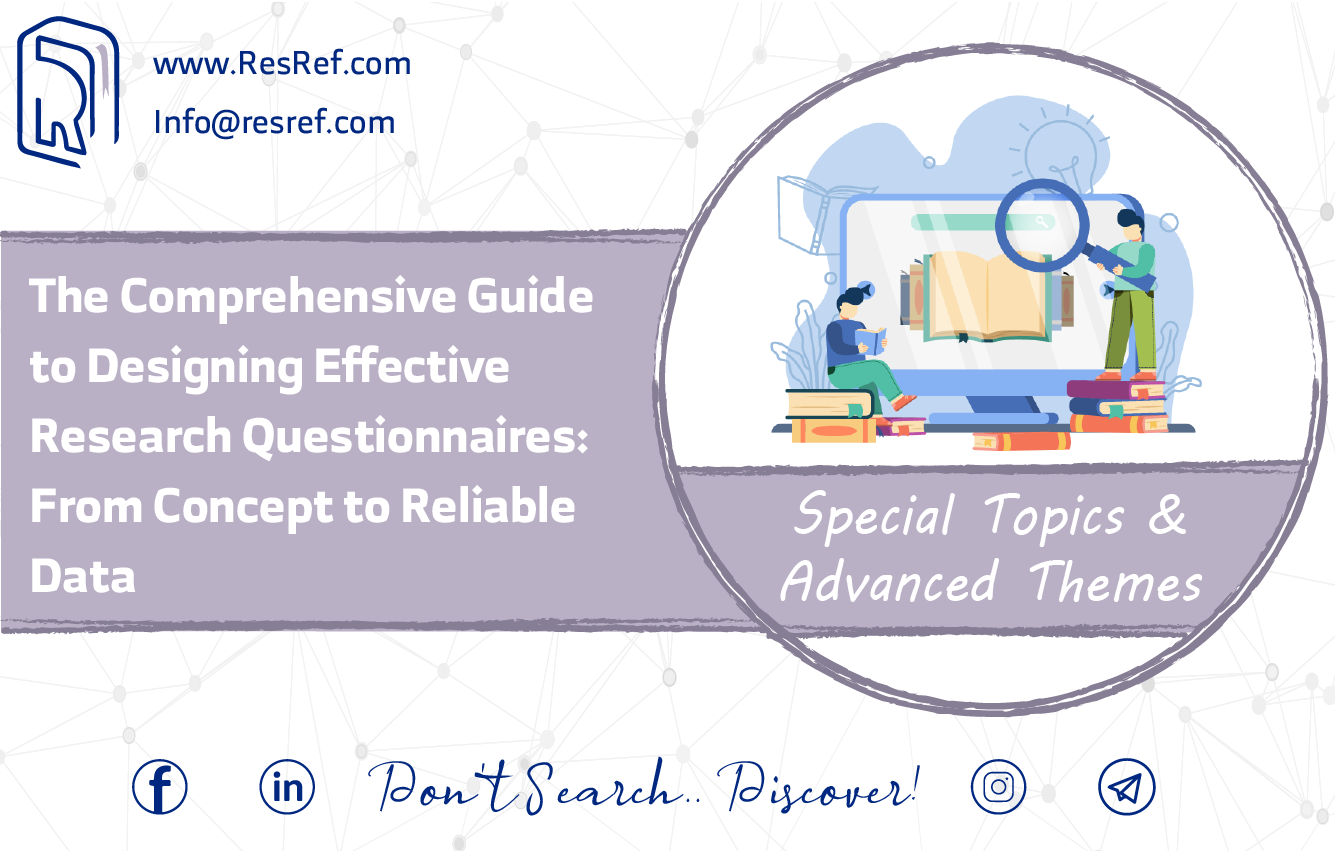Introduction
The Cognitive Failures Questionnaire (CFQ) is a widely recognized and valuable self-report instrument designed to quantify the frequency of cognitive slips experienced in everyday life. Developed by Donald E. Broadbent, Paul F. Cooper, Peter FitzGerald, and Keith R. Parkes, and originally published in the British Journal of Clinical Psychology in 1982. This concise yet comprehensive tool allows individuals to report on common instances of forgetfulness, distractibility, and blunders in action or perception. With over 3900 citations on Google Scholar, the CFQ has become a cornerstone in cognitive research, demonstrating its widespread acceptance and utility within both academic and clinical contexts.
This article provides an in-depth exploration of the CFQ, specifically tailored for researchers and clinicians seeking to understand and utilize this instrument effectively. We will delve into its structure, validation, scoring methodology, and diverse applications, ultimately equipping experts with actionable insights to enhance their studies and clinical assessments of cognitive functioning.
Key Features of the Cognitive Failures Questionnaire (CFQ)
Purpose and Use
The primary purpose of the CFQ is to assess the frequency of cognitive lapses in everyday life. It serves as a robust tool for measuring self-reported cognitive slips that individuals might encounter in daily situations, such as forgetfulness, distractibility, and blunders in action or perception.
Target Population
The CFQ is specifically designed for adults aged 18 and above. Normative data and validation studies confirm its suitability for various adult age ranges, including:
- Young adults (18-24 years).
- Middle-aged adults (25-44 years).
- Older adults (45-64 years)
- Seniors (65+ years).
Structure
The CFQ comprises 25 self-report items that systematically explore the frequency of various types of everyday cognitive lapses over a recent period, typically the past six months. The questions are meticulously structured to cover a broad spectrum of common cognitive errors, which are categorized into four main sub-domains:
- Memory Lapses: These questions specifically target common instances of forgetfulness, including forgetting why one entered a room, misplacing items like keys or a phone, failing to remember appointments or errands, and leaving important items behind.
- Attention Failures: Items in this section assess lapses in sustained attention and concentration, such as daydreaming or zoning out during tasks, missing road signs while driving, or getting distracted mid-task and losing track of what one was doing.
- Perceptual Errors: This domain addresses misperceptions or failures in processing sensory information, for instance, not noticing what someone said, bumping into objects, or failing to see traffic signals or written instructions.
- Action Slips / Motor Function Errors: These items capture errors in carrying out intended actions, including pouring a drink into the wrong container, making errors while typing or writing, or misusing tools or household items due to automatic behavior gone awry.
Scoring Method
The Cognitive Failures Questionnaire (CFQ) utilizes a quantitative self-report scoring system based on a 5-point Likert scale for each of its 25 items. The scoring process is designed to be straightforward, yet it effectively reflects the respondent’s perceived frequency of cognitive lapses.
Each item on the CFQ is scored as follows:
- Never (0)
- Very Rarely (1)
- Occasionally (2)
- Quite Often (3)
- Very Often (4)
The total score is calculated by summing all individual item scores. The total raw score can therefore range from 0 to 100. A score of 0 indicates no reported cognitive failures, while a score of 100 suggests frequent and pervasive cognitive lapses.
It is important to note that the CFQ does not have clinically established cut-off points. Consequently, interpretation is highly context-dependent and often relies on comparative or normative data. However, general guidance for score interpretation includes the following ranges:
- 0–25: Low frequency of cognitive failures
- 26–50: Moderate frequency of cognitive failures
- 51–75: High frequency of cognitive failures
- 76–100: Very high frequency; may warrant further assessment
It is crucial to remember that these ranges are illustrative and should not be used for diagnostic decisions without considering individual context, such as age, occupation, psychological stress, or potential neurological conditions.
Administration Format
Healthcare teams have several flexible options for administering the Cognitive Failures Questionnaire (CFQ). The questionnaire can be effectively administered via:
- Paper-based
- Digital (online)
- In-person interviews.
This variety in administration methods offers considerable flexibility. Patients typically take 10 to 15 minutes to complete the CFQ. This makes it a feasible and time-efficient tool for integration into both clinical and research settings.
Applications of the Cognitive Failures Questionnaire (CFQ)
The CFQ plays a significant role in various clinical and research applications:
- Screening: Clinicians can effectively use the CFQ as a screening tool to identify individuals who report a higher frequency of cognitive lapses, which may warrant further investigation.
- Research: Researchers extensively utilize the CFQ in studies exploring cognitive functioning, attention, memory, and the impact of various factors (e.g., stress, fatigue, medical conditions) on everyday cognitive performance. It serves as a valuable self-report measure in both observational and interventional studies.
Related Questionnaires
Researchers should be aware of variations and complementary tools.
- Squire Subjective Memory Questionnaire (SSMQ)
- Gudjonsson Compliance Scale
- Everyday Memory Questionnaire (EMQ)
- Attention-Related Cognitive Errors Scale (ARCES)
Languages and availability
The Cognitive Failures Questionnaire is available in several languages, significantly enhancing its global applicability in research and clinical settings. These include:
- English
- Spanish
- French
- German
- Japanese
- Dutch
The questionnaire is free for research purposes. However, while the CFQ is in the public domain for research purposes, users should always cite the original publication when utilizing the instrument.
Reliability and Validity
The Cognitive Failures Questionnaire CFQ is considered a highly reliable and valid instrument for assessing everyday cognitive lapses. Its internal consistency is high, with reported Cronbach’s alpha values typically ranging from 0.80 to 0.90. This strong statistical reliability underscores the CFQ’s consistency in measuring the intended construct. Several validation studies further support its robust psychometric properties.
- The cognitive failures questionnaire revisited: dimensions and correlates. Study link
- The Cognitive Failures Questionnaire (CFQ) and its correlates. Study link
Limitations and Considerations
Despite its strengths, the CFQ has a few limitations that experts should consider:
- Self-report measure: Patient responses may sometimes be influenced by social desirability bias or personal interpretation, as it relies on self-reported data.
- Cultural Bias: Potential for cultural bias exists, which may affect the interpretation of responses across diverse populations.
- Language Barriers: Some translations may lack full validation, potentially limiting accuracy in certain non-English speaking populations.
Additional Resources
- A direct link to the Original Validation Study: link
- You can access the questionnaire as a PDF through this link: link
- For inquiries, contact the psychology departments of institutions affiliated with the authors at the time of publication. For instance, Donald E. Broadbent was associated with the University of Oxford.
- For additional resources, consult validation studies link
Frequently Asked Questions (FAQ)
- Who can use the CFQ?
Researchers, clinicians, and healthcare providers primarily use the CFQ for adults aged 18 and above who experience everyday cognitive lapses.
- How long does it take to complete the CFQ?
Patients typically take 10 to 15 minutes to complete the CFQ. This makes it a feasible and time-efficient tool for integration into both clinical and research settings.
- How is the ODI administered?
The CFQ can be administered in various formats, including: paper-based,digital (online) and in-person interviews. This offers considerable flexibility in usage across different environments.
- Is there any cost to using the CFQ?
The CFQ is free for research purposes. For other uses, it is considered to be in the public domain, but users should cite the original publication.
A word from ResRef the Cognitive Failures Questionnaire (CFQ)
The Cognitive Failures Questionnaire (CFQ) remains a valuable tool for assessing everyday cognitive lapses. Its simplicity and ease of administration make it suitable for both research and clinical settings. However, users should be mindful of its self-report nature and consider cultural and language factors when interpreting results.
References
- Broadbent DE, Cooper PF, FitzGerald P, Parkes KR. The Cognitive Failures Questionnaire (CFQ) and its correlates. Br J Clin Psychol. 1982 Feb;21(1):1-16. link
- Wallace JC, Kass SJ, Stanny CJ. The cognitive failures questionnaire revisited: dimensions and correlates. J Gen Psychol. 2002 Jul;129(3):238-56. link









1 thought on “Cognitive Failures Questionnaire (CFQ): A Full Guide for Researchers and Clinicians”
When someone writes an piece of writing he/she retains the thought of a user in his/her brain that how a user can be
aware of it. Therefore that’s why this post is great.
Thanks!